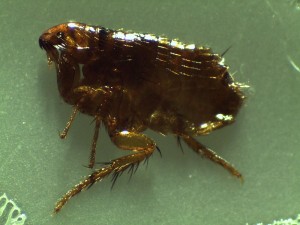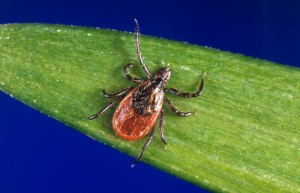
Flea & Ticks
As a cat owner protecting your cat against fleas and ticks is a year round job. Fleas and ticks can cause your cat and you many problems.
What are Fleas & Ticks?

Flea
Fleas are external parasites that feed on the blood of unlucky host animals. Fleas are insects. The most common flea that affect cats are the Dog/Cat Flea (Ctenocephalides). They are small (1 – 2.5mm) black/brown.

Tick
Ticks are external parasites that feed on the blood of unlucky host animals. Ticks are arachnids. The most common ticks that affect cats are the brown dog tick (Rhipicephalus sanguineus) and the American dog tick (Dermacentor variabilis). These ticks only require three feedings to complete their life cycles.
How does a Cat get Fleas?
Fleas are prolific egg layers. A female flea can lay over 5,000 eggs in their life time.
Fleas can infest a cat in many ways. Here are the most common ways.
- Close contact with other cats or animals that are already infested.
- Contact with infested areas. – Flea infested animals will drop flea eggs where ever they go. So your cat can get fleas from just being in an area that a flea infested animal was in.
How does a Cat get a Tick?
Generally cats will get ticks from wooded or high grass areas. This includes your own back yard and local parks.
Ticks without a host will start to quest. This means they will crawl up tall grass, bushes or other plants to a height of 18-24 inches. They will wait for a host (your cat), to pass by. The tick will then move from their ambush point to your cat.
How to Prevent Fleas & Ticks from Infesting Your Cat?
The best prevention is year round flea and tick medicine such as Cheristin, Frontline, or Revolution. These medicines will kill and repel fleas and depending on the medicine, ticks when applied properly and regularly.
To help minimize risk of infestation on top of using preventative medicine is keep your cat indoors or if you do take your cat outside, avoid high grass, wooded areas, and areas that infested animals are or have been.
Signs of Infestation
For Fleas
- Droppings or “flea dirt” in a cat’s coat – Flea eggs on cat or in cat’s environment
- Allergic dermatitis
- Excessive scratching, licking or biting at skin
- Hair loss
- Scabs and hot spots
- Pale gums
- Tapeworms
For Ticks
Ticks are visible to the naked eye. During the warmer months, it’s a good idea to check your cat regularly for these parasites. If you do spot a tick, it is important to take care when removing it. Any contact with the tick’s blood can potentially transmit infection to your cat or even to you! Treat the area with rubbing alcohol and pluck the parasite with tweezers, making sure you’ve gotten the biting head and other body parts. Since it may only take a few hours for disease to be transmitted from an attached tick, it is ideal for your cat to be evaluated by a veterinarian soon after any ticks are found.
Complications Associated with Ticks on Cats
- Blood loss
- Anemia
- Tick paralysis
- Skin irritation or infection
Ticks can also transmit diseases such as Lyme disease, ehrlichiosis and Rocky Mountain spotted fever, all of which can cause serious complications and are potentially fatal without prompt and proper treatment.
Dealing with a Flea Infestation
Giving your cat a bath isn’t good enough. You must treat your cat, other pets, your household, and outside environment.
- Thoroughly clean your house, including rugs, bedding and upholstery. (Remember to discard any vacuum bags.) In severe cases, you might consider using a spray or fogger, which requires temporary evacuation of the home.
- Treat your yard or outdoor areas for fleas. There are many flea treatment products available from insecticide sprays to foggers.
- Ask one of our Vets for the best flea treatment products. Common options include a topical, liquid treatment applied to the back of the neck, shampoos, sprays and powders. Some products kill both adult fleas and their eggs, but they can vary in efficacy. It is very important not to use products on your cat that are intended for cats (and vice versa). Prescription products are generally more effective and safer than over-the-counter products.
Flea infestations can reoccur. Flea eggs take two days up to two weeks to hatch. Take your time and be thorough when dealing with an infestation will greatly reduce reoccurring infestations.
Prevention
Prevention is the number one way to avoid flea infestation and tick problems. Topical or oral medicines are the best at prevention. We recommend year round prevention as your cat can still come in contact with flea infested animals or areas during the winter months.
Ask one of our Vets for the best prevention medicines.
My Cat doesn't go Outside. Do I need to treat for Fleas & Ticks?
If you have other animals that do go outside, then we do recommend you use preventative medicine on your cat. Even if you are treating your other animals, fleas and ticks still have a chance of transferring to your indoor cat.

